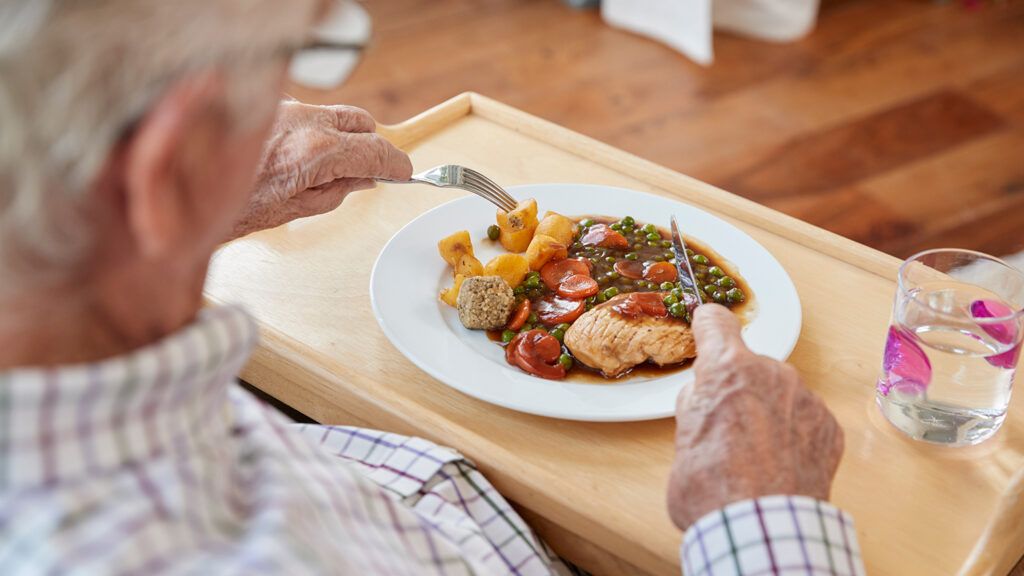Lisa Weitzman, LISW-S is a Care Consultant and Assistant Master Trainer at Benjamin Rose Institute on Aging
When we sit down to the table at a holiday celebration, it’s natural to focus on the wonderful food and drinks and the elevated spirits of those around us. But it’s important also to take notice of any older adults who may not be communicating as well as others at the gathering. Maybe you notice that an elder loved one has recently gotten thinner without trying to lose weight. Consider whether this person has had limited access to nutrient-rich food. Maybe he or she seems disinterested in the food at the table, or mentions having little or no appetite. If any of these things apply, malnutrition may be to blame.
Malnutrition is most simply defined as a nutritional imbalance that can potentially affect any person, regardless of weight. Even someone who might have loved to eat and cook in years past may suffer from malnutrition as they age. Chronic health conditions combined with inadequate nutrition can often negatively impact older adults and prevent their bodies from absorbing the nutrients they need for healthy aging. Depression; social isolation; mental health challenges; embarrassment; lack of food; functional changes that limit the ability to shop for, prepare, or even eat food; and financial struggles further increase the risk for malnutrition. As serious as the condition is, malnutrition can be treated and prevented if proper measures are taken.
National malnutrition reports indicate that prolonged malnutrition can cause changes in a person’s body composition which makes it more difficult to perform routine daily tasks. In addition, people who are malnourished can be at greater risk for health complications, including infections, which in turn might require them to receive more care and medications, and necessitate hospital stays up to 6 days longer than someone not at nutritional risk would need (Barker LA, Gout BS, Crowe TC. Hospital malnutrition: Prevalence, identification and impact on patients and the healthcare system. Int J Environ Res Public Health. 2011;8: 514–527). Because of this, nutrition is considered a vital sign when it comes to the health of older adults.
But the good news is that because malnutrition is preventable. There is a great deal you can do to help your loved one, including:
- Ensure that every doctor’s visit includes a screening so that the person’s medical team can keep a close eye on malnutrition risk factors.
- Ask doctors to talk to your loved one about the importance of nutrition as a core component of his or her medical treatment plan.
- Encourage providers to adopt innovative solutions to make it easier for your loved one to follow a nutrition plan.These approaches may involve designing meals to meet specific dietary needs, preparing food with a consistency they can easily chew and swallow and providing access to nutritious food at hospitals and outpatient clinics
- Advocate with your health care provider for coordinated nutrition education and counseling, and with local and state officials for increased access to healthy food.
When it comes to protecting your loved one’s health, food may indeed be just what the doctor ordered!






